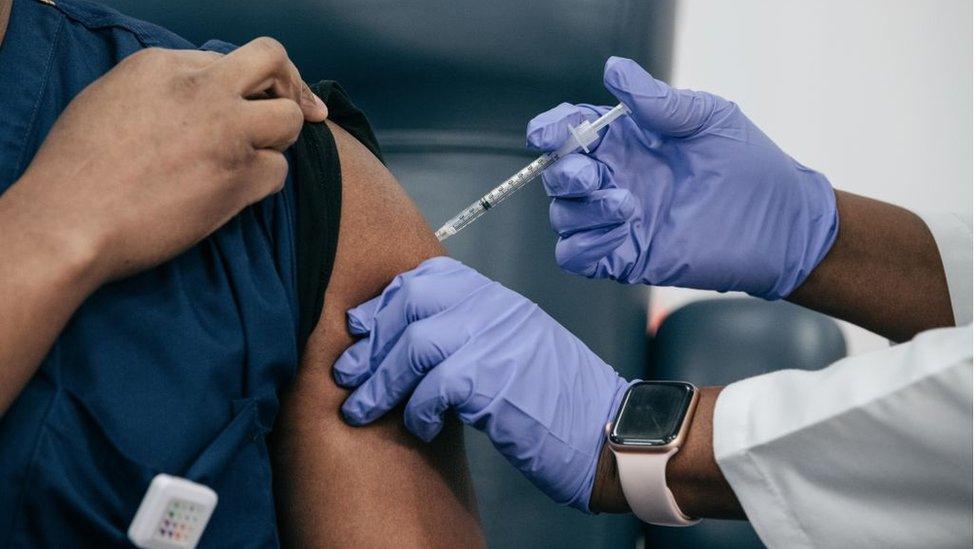'New York vaccine mandate could destroy my restaurant'
- Published
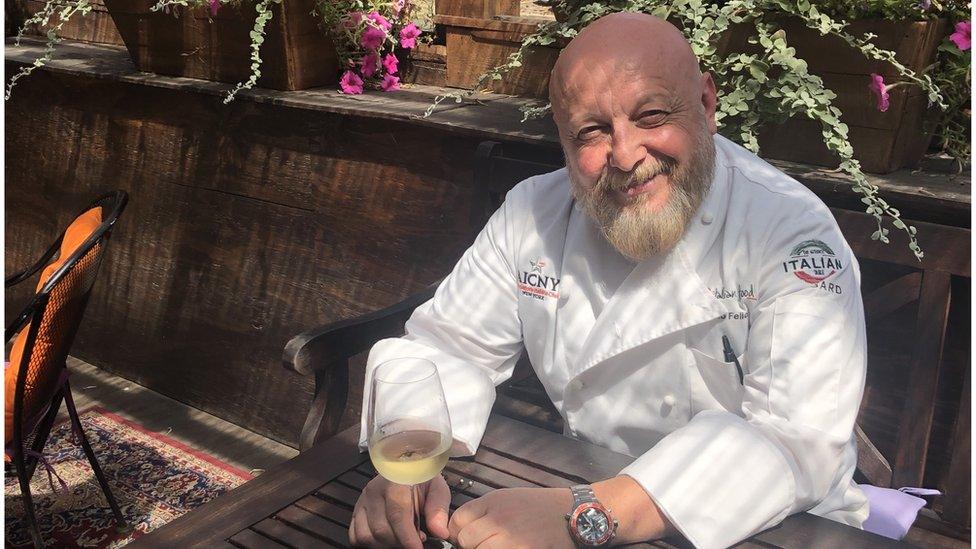
The pandemic has been tough on Massimo Felici, who owns three restaurants in the Staten Island borough of New York City.
"For 15-16 months business was not happening at all," he tells the BBC. "In one I had to get rid of 80% of my staff. We barely survived. I thought I was definitely going to lose my restaurants."
Trade has started to recover but he says a new challenge now looms: New York's City's vaccine mandate.
Starting this week, customers and staff must prove that they've had at least one dose of a vaccine to enter indoor venues such as restaurants, gyms and theatres.
Many have welcomed the move at time of surging infections in the city, but business owners like Massimo are scared.
"This could destroy my business," he says. "There are too many people who are unvaccinated."
"Right now it's summer, so it's not too bad to eat outside. But soon it will be really cold. A lot of people are going to get fed up and leave."
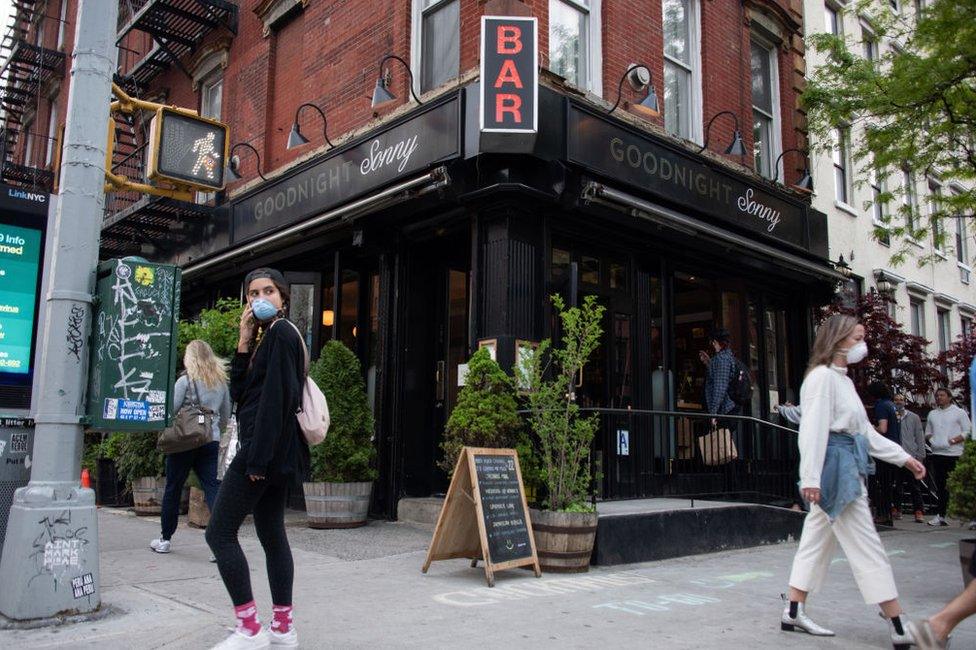
Unvaccinated people can no longer enter the city's bars
Vaccine mandates are a hot topic in the US as Covid rages on. New York is the first city to introduce one, but San Francisco has announced it will launch a similar policy on 20 August and others are expected to follow.
Meanwhile a flurry of private US businesses, state bodies and universities have made vaccination a condition of employment or study, while some such as the cruise operator Norwegian have barred passengers who have not been jabbed.
It's attracted fierce criticism in Republican states such as Florida and Texas, which have banned the use of so-called vaccine passports outright. But in New York City, mayor Bill de Blasio has said it is a necessary step to tackle vaccine hesitancy at a time when only 60% of residents are fully jabbed.
"It is time for people to see vaccinations as literally necessary to living a good, full and healthy life," Mr de Blasio told a recent press conference. "If you're unvaccinated, unfortunately, you will not be able to participate in many things."
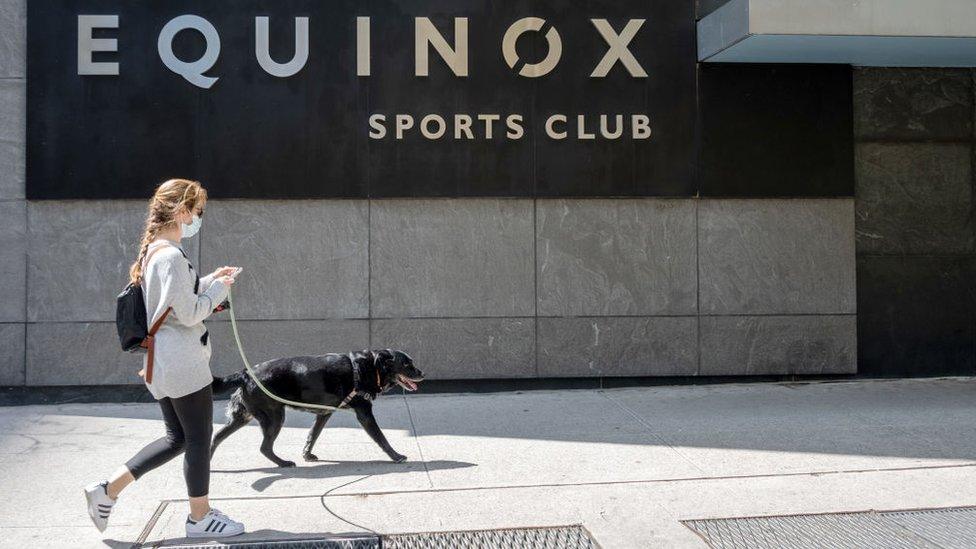
Equinox has 35 clubs in the city
For supporters of the mandate, such as Equinox Fitness Clubs, the point is clear - to protect customers and staff, as well as public health.
By chance the group, which has 35 clubs in New York and many more across the US, announced its own mandate for members and staff a day before the city did.
"We've always been guided by our first priority which is protecting the wellbeing of our community," executive chairman Harvey Spevak tells the BBC. "The reaction has been overwhelmingly positive... they are proud that we're being courageous."
Mr Spevak thinks the move will allow firms like his to remain open if a third wave of Covid sweeps the city and restrictions are re-imposed.
But Nicole Malliotakis, a Republican Congresswomen for Staten Island, says New York's policy is "overreach" and will only burden already struggling businesses.
She has joined forces with local business owners like Mr Felici to try to block the mandate in a lawsuit, arguing it will exclude the unvaccinated from everyday activities and penalise companies.
Then there's the issue of how to police it.
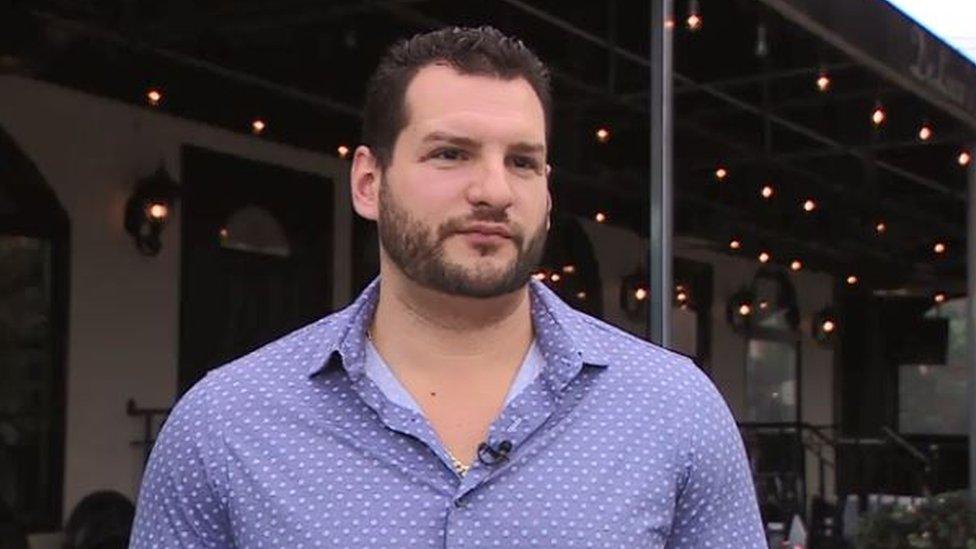
Rob DeLuca, owner of DeLuca's restaurant in New York
"What's going to happen when you ask somebody for their papers and they don't want to show them to you," says Rob DeLuca, owner of DeLuca's restaurant in Statten Island, which is also party to the lawsuit.
"What are we supposed to do? We're privately owned businesses, I don't know why this is our job."
But Scott Burris, professor of law at Temple University, thinks it's "pretty clear" health authorities have the legal right to require vaccination as a means of slowing a continuing pandemic, as long as they do not discriminate.
He adds: "While I saw no mention of an exemption for religious or conscience grounds [in New York], this is not a general vaccination order but a requirement that customers in certain venues be vaccinated. No one is forced to get the shot."
Unions and trade groups also back the mandate, with the NYC Hospitality Alliance calling it a "difficult" but "essential" step to stop further restrictions and shutdowns.
New York and San Francisco are likely to be closely watched as officials in other parts of the country consider whether to push ahead with similar plans.
According to polls, Americans are sharply divided on the idea of vaccine mandates, with support tending to fall along party lines.
In the meantime, private firms such as Equinox continue to plough their own furrow. After New York, the chain will roll its mandate out across the US, although it says it may struggle to implement it in some states due to local laws.
"We would implore the federal government to make a vax mandate universal, throughout the US," Mr Spevak says.
"We already do that with other types of vaccinations [to enrol in public school], so I don't know why it is so challenging to do this."
- Published15 August 2021

- Published3 August 2021
